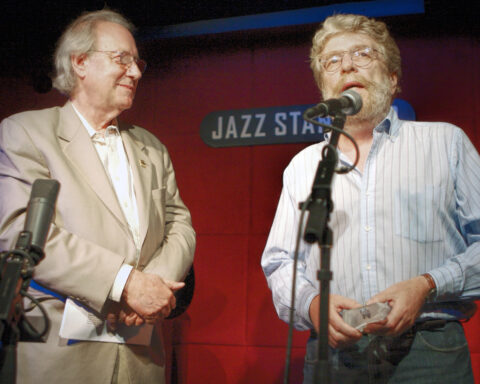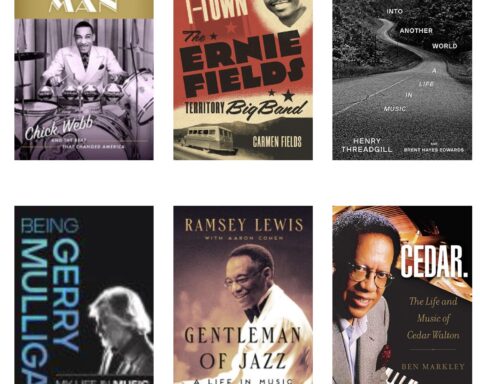Ed. note: Winner of the 2021 JJA Jazz Award for Lifetime Achievement in Jazz Journalism, Kevin Whitehead is an internationally renowned writer, published since 1979 in Coda, JazzTimes, Down Beat, the Baltimore and Washington City Paper, Village Voice, the Dutch daily de Volkskrant, Chicago Sun-Times and Chicago Reader, Point of Departure and The Audio Beat, and elsewhere. Author of three books featured below, and longtime jazz critic for NPR-distributed Fresh Air, Kevin has taught jazz history at the University of Kansas and Towson University]
I feel sincerely honored to’ve received JJA’s Lifetime Achievement Award — praise from one’s peers counts for a lot. (I was rooting for Paul De Barros.)

© Francesca Patella
I’ve been asked to comment on my work, or maybe give colleagues the benefit of my wisdom, such as it is. Any advice I could offer may be too obvious to need stating. Here let me prove it to you, with a few tips you may want to reject or ignore, or directly contradict. (As Steve Lacy would say, what you run away from is as important as what you’re drawn to.) Then I’ll talk a little about my reviews for NPR’s Fresh Air.
- Don’t call anyone/anything the first, best, or only instance of something. It’s fine to declare someone/something your favorite, or speak up for a rare talent, but you’ve haven’t heard everyone, not even in your own town. And for any innovative practice you can think of, there is usually a precedent. Look at it this way: arguing for someone’s/something’s superiority or primacy involves proving a negative hypothesis, which is logically impossible: you’re arguing that someone/something better or earlier could not exist. Heck, avoid all the logical fallacies.
- Leave yourself out of it. I do read pieces where the writer injects themselves into the discussion in a satisfying way — Martin Johnson bonding with Vincent Herring in a recent JazzTimes, say, or John Corbett’s autobiography-in-listening-to-70s-records Pick Up the Pieces— but generally, readers are interested in your reportage and opinions, but not your life.
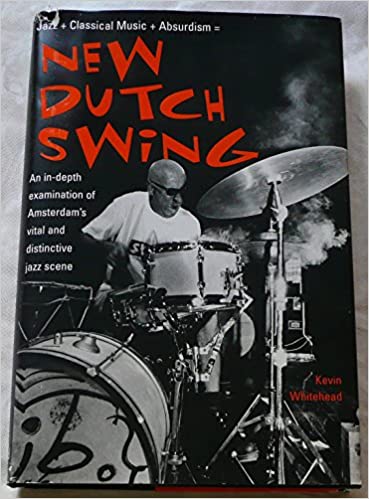
That said, one can take self-effacement too far: think of Whitney Balliett profiles where musicians go into long monologues at lunch counters, apparently dining alone.
- Recognize your ‘deaf spots,’ by analogy with blind spots. That music you hate everyone else likes: maybe it really is you. (No, I’m right — Sinatra sings like a thug.) Nobody with developed tastes likes everything, but we are not obliged to write about music we disapprove of. Exceptions may occasionally be made for addressing music/artists the writer believes to be wildly overrated. (Giovanni Russonello’s star-and-a-half drubbing of Snarky Puppy in Down Beat comes to mind.) Jazz critics as a rule are not bitter putdown artists, and that’s commendable. I used to joke that one function of criticism is to convince people music they like isn’t actually any good, and I confess to having written a few such reviews myself. (Not the only one of these rules I’ve broken.) Tip for musicians: That critic you wish would write about you may be doing you a favor by not weighing in.
Think like a musician: Know your limitations; play to your own strengths.
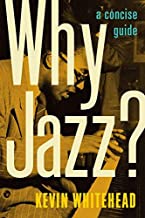
- If you’re reviewing an album and there’s something about it you don’t understand — some technical point, puzzling intentions — it’s OK to ask the artist for clarification. (Exception: if you’re going to trash their music. Do not sucker-punch.)
- Read a lot, and broadly. Jazz literature is remarkably rich—analysis, music history, cultural history, oral history, (auto)biography, sociology– and there’s always more to learn. (Broad listening: ditto.) But read around the borders of the subject too — about ragtime, blues, the Great Migration, systemic racism, vaudeville, Broadway, Hollywood (if you’re writing about jazz in the movies — insert plug for my book Play the Way You Feel), brass bands, the record
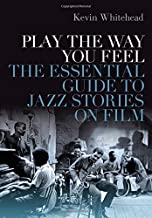
(OUP 2020)
business, the psychology of music. And beyond. Stephen Jay Gould’s essay on the evolutionary origins of baseball, “The Creation Myths of Cooperstown,” helped shape my view of how jazz evolved from its sources. And of course:
- Talk to musicians. Asking good questions, showing you do your homework: that’s a good way to break the ice. See, I told you you already knew all this.
- Bonus tip: If you’re producing a record date, don’t put yourself in on piano, and make the musicians record your tunes. It’ll do wonders for your posthumous reputation.
Rule of thumb I developed early as a free-lance writer: any good regular gig you land, anything over two years is gravy. That I’ve been reviewing jazz for Fresh Air for almost 34 years is a marvel to me (and maybe you), and I know how lucky I am to have had all that on-the-job training and the same mind-reading, sympathetic producer since 1992, Roberta Shorrock, who edits the words and music together. The folks there give me a remarkably free hand, in terms of what I review.
Including the host’s intro, most pieces run about seven minutes, and have roughly equal amounts of music and talking: four or five short paragraphs, more or less, setting up and punctuated by short, self-contained musical sequences. Sixteen bars at a medium tempo (110 bpm) comes out to about 35 seconds, good length for an excerpt. (A minute seems too long; 45 seconds is OK.) So I’m always listening for shapely, self-contained improvised choruses and packets of catchy thematic material to highlight. Where a print review strives to give the big picture, a radio review may be about isolating memorable moments.
I started out writing the texts first; nowadays I often begin by picking and sequencing the music, so the excerpts have a good overall flow. Those ad hoc suites help clarify what I want to say (or what there’s time for), usually focusing on aspects of the music-making process (approach to the material, how the musicians interact, implications) rather than my feelings about the results. One reason for all the music in a segment is to let listeners make up their own minds — though I will try to sway the jury. I review a broad range of music, looking to highlight the diversity and vitality of jazz and related musics, now and across the decades. One hopes to make converts, of course, but also to convey that jazz is serious culture. That said, in my experience some music proves resistant to radio reviews. Music that changes very slowly is very hard to do justice to, via short excerpts.
Once a text is drafted, I repeatedly edit, to tighten it up — it’s the rare sentence that can’t be trimmed — and make the language accessibly plain. (Pro tip: Don’t write yourself tongue-twisters.) I’m mindful that on radio (as in the classroom) listeners may not be giving their full attention all the time, and hope a light tone will help keep minds from wandering too far.
That guy I play on the radio: Is he really me? I’m never quite sure. He sounds a little more reasonable than I am. Certainly he talks better. Not so much with the um, uh, y’know, dah.


